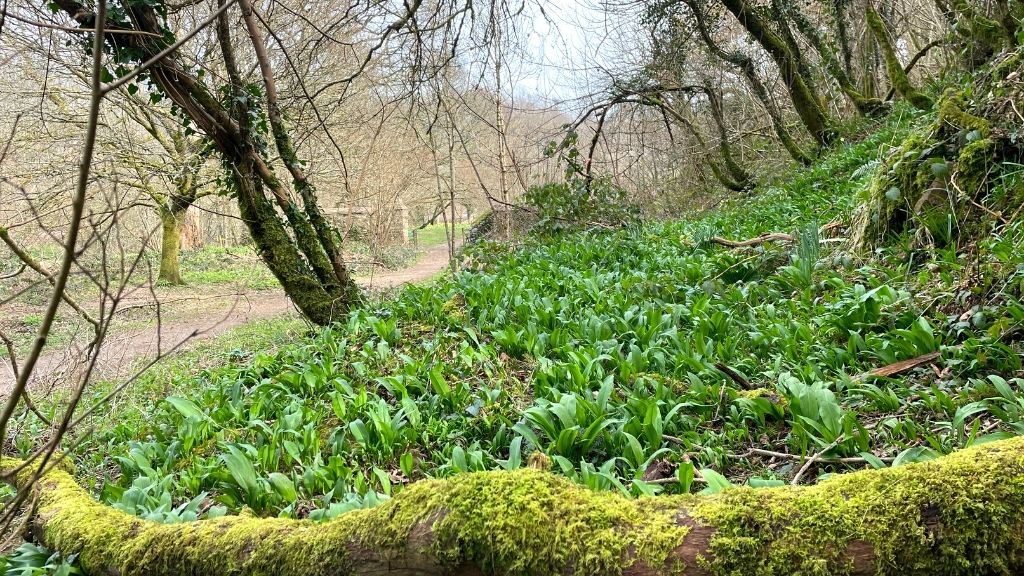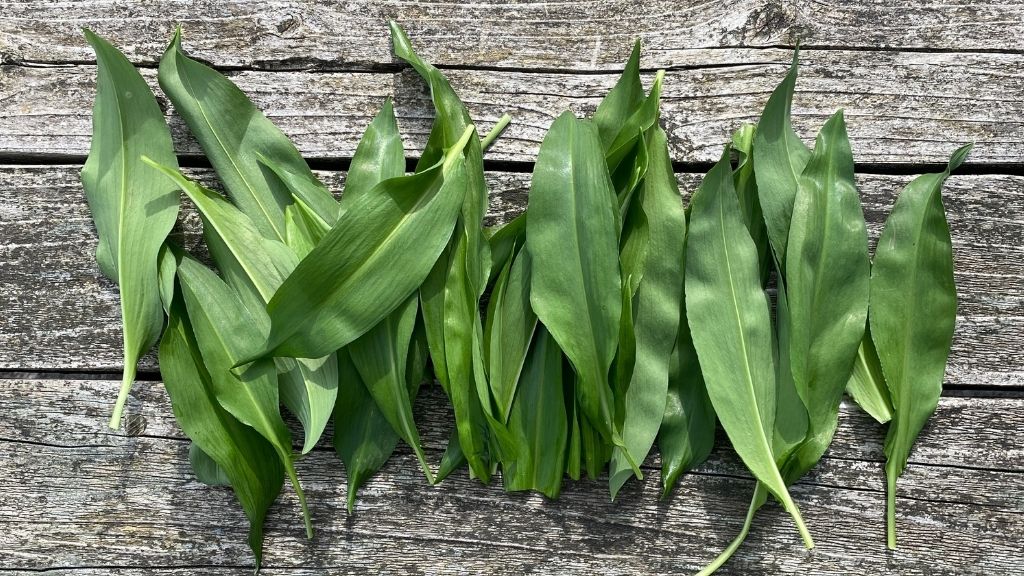Wild Garlic Fields Forever
We pay homage to one of the most abundant crops nature has to offer us on the Dartington estate.

Wild Garlic growing down by the River Dart on the Dartington estate
March can be a difficult time for growers as the remains of last year’s crops begin to tire and the new season hasn’t quite kicked into gear. Yet there are edible plants that appear at this time of year if you are willing to look for them, and in some cases you don’t even have to do anything to grow them. Wild Garlic, also known as ramsons or Allium ursinum, is a great example of this. It grows very happily here on the Dartington estate in great swathes along the river banks and on the floor of many of our woodland glades. It’s easily harvested and can add flavour and depth to many dishes.
Tara Vaughan-Hughes, Head of Food Strategy, sees wild garlic as a key ingredient for the food outlets here:
“Once wild garlic appears, we use it in all the kitchens at Dartington. Our first harvest went into a potato and wild garlic soup for Schumacher College and Dartington Arts School students. The next harvest may see its way into a frittata at the Green Table. We will be making pesto for sure, which is my favourite way to use it; lightly garlicky and bright green, it’s amazing baked into focaccia, or mixed with pulses, or as a dollop on grilled fish or a bowl of soup. We always make our pesto without cheese, so that it’s good for omnivores, vegetarians and vegans alike – we don’t’ want anyone to miss out!
We are on a mission in the kitchens to be as sustainable and local as possible, and this means looking at ways that we can make the most of what is right on our doorstep – in this case, quite literally! Wild garlic grows abundantly on the estate, and our ultimate goal is to freeze, dehydrate, pickle and otherwise preserve as much as we can, so that we can use it past its normal season, hopefully through the winter and into next March, when the new crop appears.”

Colum Pawson, Head Gardener at Schumacher College, grows a reasonable percentage of the crops used by Tara and her team of chefs to feed our students, as well as customers at the Green Table and White Hart. He is also enthusiastic about the benefits of this delicious foraged plant:
“It does grow abundantly in the damp woody areas of Devon. For us at the College, it’s a great bridge crop between our crops from last year, which are just about finishing now, and the new crops we are currently sowing but are not yet ready to harvest. Anything that is fresh and green this time of year is at a premium.”
So if you are interested in making the most of this natural crop, now is the time for action. There are plenty of guides out there to help you pick the right plant, but do be careful to make sure you identify it correctly. As Tara mentions, it’s very likely you’ll be able to choose a dish, salad or sandwich with wild garlic in it next time you head up to the estate for a meal. (Though if you don’t like the flavour, don’t worry, there will be other options available!)
Find out more about our opening times via this link.
Did you know we run a regular foraging course here at Dartington? Why not book yourself in for our short course Nature’s Alchemy in May to explore wild food, forest therapy and plant-based medicine with Myrtle Cooper, Emma Capper and Tania Bryson.
Eating local is one of the most sustainable things we can do as food consumers. Food producers too need to focus on what works in the context of the local soil and climate, as well as harnessing what already exists on the land to make the best yield per acre without harming the ecosystem. It can be more ecological sometimes to resist intensive growing and responsibly make the most of what nature already has to offer us. These principles are explored in our Regenerative Food and Farming programmes at Schumacher College. You can explore the different options via the links below. Please note we are currently accepting applications for our undergraduate BSc Regenerative Food and Farming, which begins in September 2022 and there are generous bursaries available!
